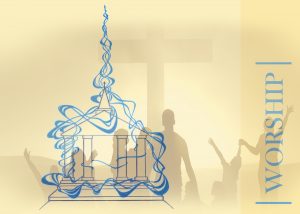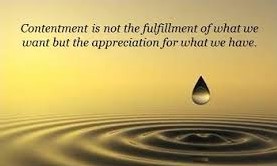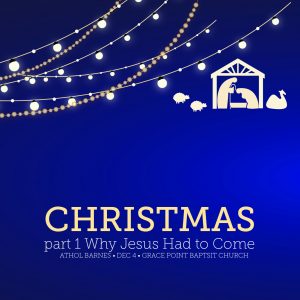 Nehemiah 8:1-12
Nehemiah 8:1-12
A fairly common statement that can be heard in Christian circles after a Sunday morning, goes something like this; “I didn’t get anything out of the service today”. However, we should always come into a worship service with an expectation to encounter the presence of the Lord. Looking at Nehemiah chapter 8 I want to draw five principles that will guarantee that we will always experience a special touch from the Lord every time we meet together.
Worship is more than singing, worship must become a lifestyle for us. We worship what we give value to, we worship by the way we use our money, the way we work, the way we share the Gospel with others and we worship in the way we spend our free time. When we understand worship, we begin to understand that we worship God with our very lives.
Looking at Nehemiah chapter 8 we see the following 5 principles of developing a lifestyle of worship:
Prepare to Worship: The event described in this chapter took place during a two day festival called the feast of trumpets, it was a holy day and to be treated like the Sabbath (see Leviticus 23). All the people had gathered at the water gate and if we look back a few verses the gathering of people was approximately forty-five thousand thousand. This wasn’t some random gathering, this was a planned event. A platform had been built for Ezra to stand on, and he read from sunrise until noon, which means that all the people had to assemble before sunrise. This took a lot of work and coordinating, there was preparation involved that probably took days before this event.
We need to remember that worship is primarily spiritual, thus we need to look for spiritual solutions to the desire for more effective worship. Before we enter into a worship service we need to prepare our own hearts to worship the Lord. There is much that could be said on this, but just one practical piece, how can you spend Saturday night watching r rated movies and then expect to experience the presence of God on a Sunday morning, our hearts need to be prepared. A very practical step would be to get up early on a Sunday morning and spend time with the Lord, repenting of your sins, praying for the blood of Jesus to cleanse you of your sins. This will require discipline and maybe an adjustment in your schedule, but it all boils down to what we value the most, what do we give value to, what do we worship?
As we need to approach the throne of grace in worship, we need to be seeking personal holiness in our lives (see Hebrews 12:14).
Engage with the Word: As Ezra climbs into the makeshift pulpit, and opened the book, all the people stood up. The people actively engaged in the reading of the Book of the Law. There was not a passive sitting down and expecting Ezra to keep them alert. The people arose and engaged with the word of God, they remained standing all morning, as Ezra read and the Levites went amongst the people explaining the law to them.
Our worship should be response to the word of God. A number of times I have heard the statement made that the singing prepares us for the message, and if the singing is bad, then we don’t get anything out of the message. But throughout scripture we have examples that would suggest we have it the wrong way around. Our worship needs to be in response to the word.
Focus on Heaven: Before Ezra begins to read he focuses the attention of the people on God, (see verse 6) The people prepared themselves, then they engaged with the Word and thirdly they focused on Heaven. They focused on the object of their worship.
Worship is a time when we take our eyes off of ourselves and our small world and focus on the Glory and majesty of the creator of the universe. Everything in our worship services, should be to draw our attention towards God and to cause people to think about Him. Worship is to be about Him and his majesty and greatness.
Give of Yourself: As the people were hearing the Word of the Law being read, they began to weep and mourn as they became aware of how far they had drifted from God’s original intent for the nation. This wasn’t a little crying or sadness, there was a grief that came over the people that affected everyone, so much so, that the priests had to calm them down as we read in the following verses. The people gave of themselves in repentance and grief.
Worship is activity and requires us to give of ourselves. Not only must we actively engage in worship, but we must also give of ourselves, worship is a sacrifice to God (see Romans 12:1)
Worship is a sacrifice as we declare that we give our all to God in worship. And here is the amazingly powerful truth, our worship literally becomes an incense in the presence of the Lord. David understood this in Psalm 141:2.
When you are tempted not to give of yourself in worship, remember that worship is a privilege we have because of the cross of Jesus Christ, because of what Jesus did on the cross, our sacrifice of praise literally becomes incense in the presence of the all holy God!
Leave Celebrating: After the people had repented and grieved, they all went away rejoicing (see v12). Nehemiah understood the value of the truth that the Joy of the Lord is our strength, and that the people needed to be strong and joyful as they left to go to their homes.
The final principle in worship is how we leave the house of worship. We should leave celebrating because we have just encountered a fresh touch from the Lord, our sins have been forgiven and we are free. As we leave our worship service, our conversation needs to be permeated with the very real fact that we encountered the living God in worship.
Worship is more than an event or a gathering, worship is a lifestyle and not an event. The truth is that If you don’t worship outside the church, you will never worship in the church. If you don’t worship God during the week, don’t expect to come to church on a Sunday and ask the worship leader to lead you into worship.
Worship styles come and go, throughout the History of the church, the music style and the instruments used have been constantly changing. The style of worship today is different from fifty years ago, and it was different fifty years before that. Worship styles may change, but worship itself must never change.
If we become so attached to a particular style, if a particular style of worship becomes our preference and we feel that it is the only way to worship, then we have missed the point of worship. Neither contemporary, traditional or blended are the right way to worship, because worship is a matter of the heart. (read John 4:23)





 As we study the Old Testament we see that it all points to the coming Messiah, it is as if the Old Testament is a road that leads to the little town of Bethlehem, and to a seemingly insignificant event on a global scale, a child being born who will be the savior of the world.
As we study the Old Testament we see that it all points to the coming Messiah, it is as if the Old Testament is a road that leads to the little town of Bethlehem, and to a seemingly insignificant event on a global scale, a child being born who will be the savior of the world.
